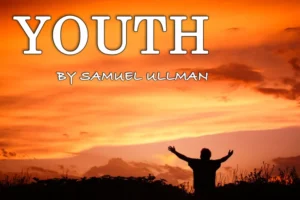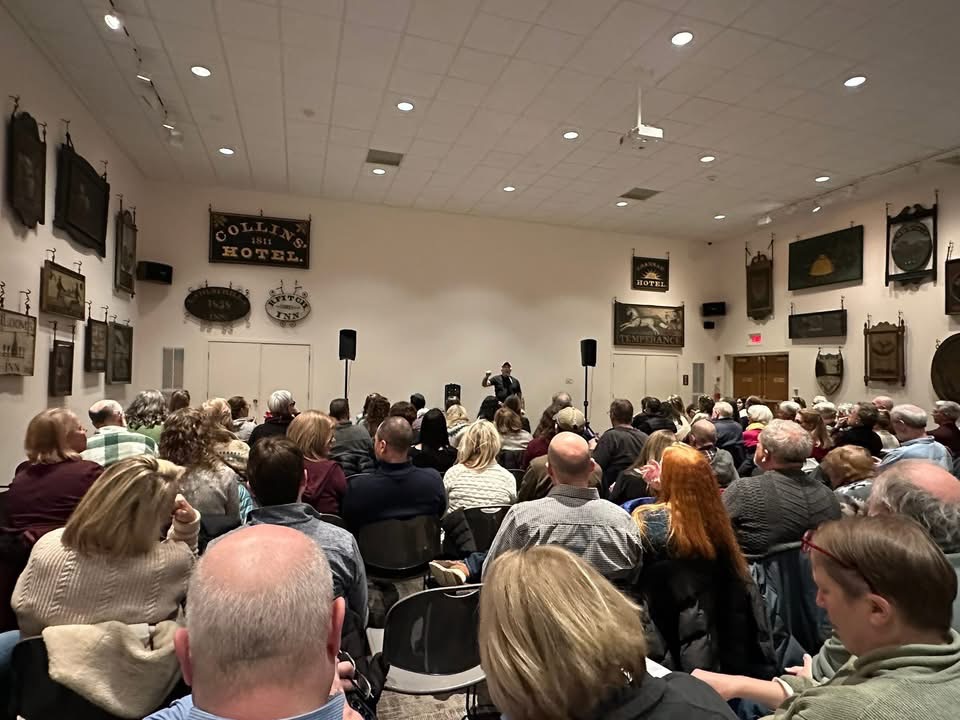In 1840, an 11-year-old Samuel Ullman left his home in Germany to move to America with his parents.
They settled in Port Gibson, Mississippi, and eventually, Ullman started his professional career as a businessman, city alderman, and on the local board of education in Birmingham, Alabama.
During his 18 years of public service, from 1884 until 1902, Ullman advocated educational benefits for black children in a region of America that wasn’t willing to accept change.
Before he died in 1924, he wrote a poem titled “Youth,” which was made famous by General Douglas MacArthur.
_________________________________________
YOUTH
Youth is not a time of life; it is a state of mind; it is not a matter of rosy cheeks, red lips and supple knees; it is a matter of the will, a quality of the imagination, a vigor of the emotions; it is the freshness of the deep springs of life.
Youth means a temperamental predominance of courage over timidity of the appetite, for adventure over the love of ease. This often exists in a man of sixty more than a body of twenty. Nobody grows old merely by a number of years. We grow old by deserting our ideals.
Years may wrinkle the skin, but to give up enthusiasm wrinkles the soul. Worry, fear, self-distrust bows the heart and turns the spirit back to dust.
Whether sixty or sixteen, there is in every human being’s heart the lure of wonder, the unfailing child-like appetite of what’s next, and the joy of the game of living. In the center of your heart and my heart there is a wireless station; so long as it receives messages of beauty, hope, cheer, courage and power from men and from the Infinite, so long are you young.
When the aerials are down, and your spirit is covered with snows of cynicism and the ice of pessimism, then you are grown old, even at twenty, but as long as your aerials are up, to catch the waves of optimism, there is hope you may die young at eighty.
_________________________________________
“… there is hope you may die young at eighty.”
I like this a lot. Other than the dying part, which I have no intention of ever doing.
Every morning, I remind my students that I’m 54 years old and still seem to have more energy than they do, and to both their credit and terrible discredit, most agree.
It’s easy, convenient, and perhaps delusional for someone in their fifties to say, “Age is a state of mind,” but I believe this to be true.
As some people get older, they seem to stagnate and eventually contract their lives. They stop trying new things. Cease to be daring. Refuse to take risks and do scary things. Their listening and viewing habits stagnate. They find it impossible to see the new as better than the old. They no longer dream of the next big thing. Routines become ingrained and immutable. Bedtimes become inflexible. Days become habitual. Travel slows and eventually stops.
They allow themselves to get old by acting old.
Worst of all, they start using that terrible word:
Old.
Once you refer to yourself as old, you’ve decided to be so.
Avoid it at all costs, and reject all of the trapping associated with it.
Ask yourself:
Is my life expanding or contracting?
Do I have a new horizon to chase, or has my life become comfortably stagnant?
Am I seeking new connections, unforeseen opportunities, impossible challenges, and greater pursuits? Or does my life resemble the same life I had two years ago? Five years ago? A decade ago?
Youth is the “temperamental predominance of courage over timidity of the appetite, for adventure over the love of ease. Nobody grows old merely by a number of years. We grow old by deserting our ideals.”
Ullman died in 1924 at the age of 83. My hope is that he adhered to the wisdom of his poem and died young.
You, too.







